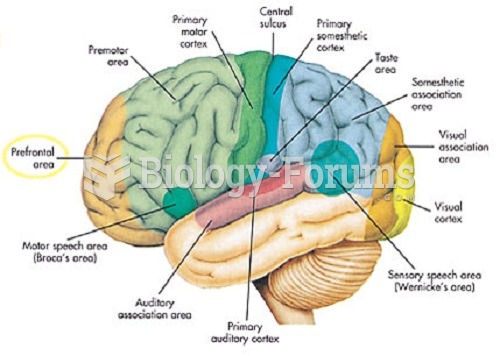This topic contains a solution. Click here to go to the answer
|
|
|
Did you know?
Calcitonin is a naturally occurring hormone. In women who are at least 5 years beyond menopause, it slows bone loss and increases spinal bone density.
Did you know?
Medication errors are more common among seriously ill patients than with those with minor conditions.
Did you know?
Each year in the United States, there are approximately six million pregnancies. This means that at any one time, about 4% of women in the United States are pregnant.
Did you know?
If all the neurons in the human body were lined up, they would stretch more than 600 miles.
Did you know?
It is difficult to obtain enough calcium without consuming milk or other dairy foods.







